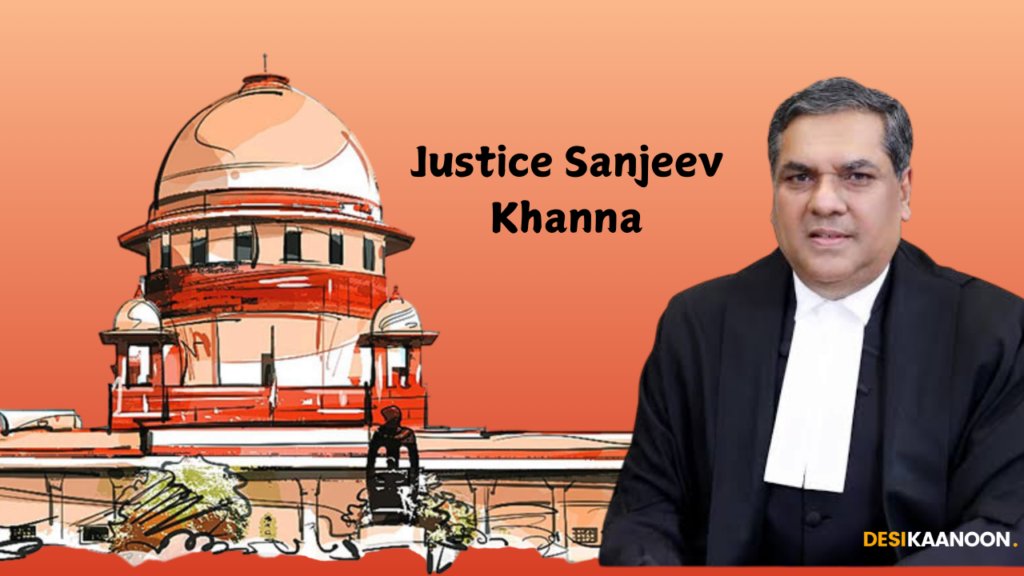Aastha Pareek
Justice Sanjiv Khanna is set to assume office as the 51st Chief Justice of India with effect from November 11, succeeding Justice D.Y. Chandrachud. His tenure is marked by numerous influential rulings, with contributions spanning corporate governance, constitutional interpretations, and individual rights.
Born into a prominent legal family, Justice Khanna completed his law studies at Delhi University and began his practice at the Delhi High Court. He was appointed as a judge of the Delhi High Court in 2005, where he handled diverse cases in constitutional, civil, and criminal law. Elevated to the Supreme Court in 2019, he gained a reputation for his clarity and balance in judgments on challenging legal matters.
One of his landmark judgments addressed the plea to remove the terms “secular” and “socialist” from the Constitution’s Preamble, asserting that these terms are core features that require interpretation through an Indian context rather than a purely Western lens. This ruling reflects his dedication to maintaining the foundational elements of the Indian Constitution. Additionally, Justice Khanna contributed to significant rulings on topics such as privacy and free speech, further solidifying his role in shaping modern Indian jurisprudence.
Some other landmark judgements are:-
1.Right to Privacy: Justice Khanna was part of the nine-judge bench in the Justice KS Puttaswamy v. Union of India1 case, which declared the right to privacy as a fundamental right under Article 21 of the Constitution. This judgment has since become a cornerstone in the discourse around privacy and data protection laws.
2. Insolvency Law: In the Swiss Ribbons Pvt. Ltd. v. Union of India2 case, Justice Khanna authored the judgment that upheld the constitutional validity of the Insolvency and Bankruptcy Code (IBC). The judgment ensured that the IBC framework remained an effective tool for resolving corporate insolvency while protecting the rights of both creditors and debtors.
3. Sabarimala Review: Justice Khanna was part of the review bench in Indian Young Lawyers Association v. State of Kerala3, concerning the entry of women into the Sabarimala temple. The bench was tasked with balancing constitutional rights to gender equality with religious freedoms.
4. Bhima Koregaon Case: In the Romila Thapar v. Union of India case, which dealt with the arrest of activists following the Bhima Koregaon violence, Justice Khanna emphasized the importance of safeguarding civil liberties and the need for an impartial investigation.
As Chief Justice, he will hold substantial responsibilities, including acting as the “Master of the Roster,” determining case allocations to various benches, which allows the Chief Justice to steer the judiciary’s role in pivotal legal questions. As he takes over the role of Chief Justice, his tenure, though relatively short, is expected to prioritize issues relating to judicial transparency and the functioning of the courts. His experience on Constitution Benches—including several high-profile cases—positions him to further lead reformative measures in the judiciary. Given his background, he is also expected to address challenges related to corporate governance, insolvency law, and individual rights, continuing the legacy of judicial activism balanced by a firm adherence to constitutional principles.
Justice Khanna’s six-month tenure will likely see a continuation of reforms initiated under the leadership of CJI DY Chandrachud, particularly in areas of technological integration in the judiciary and efforts to reduce case backlogs. His prior involvement in constitutional and corporate law positions him as a well-rounded judge capable of handling India’s evolving legal challenges.
With a focus on progressive legal reforms, Justice Sanjiv Khanna is expected to leave an enduring mark on the Indian judiciary during his tenure as Chief Justice.
1. (2017) 10 SCC 1.
2. (2019) 4 SCC 17.
3. (2019) 11 SCC 1.
4. (2018) 10 SCC 753.

